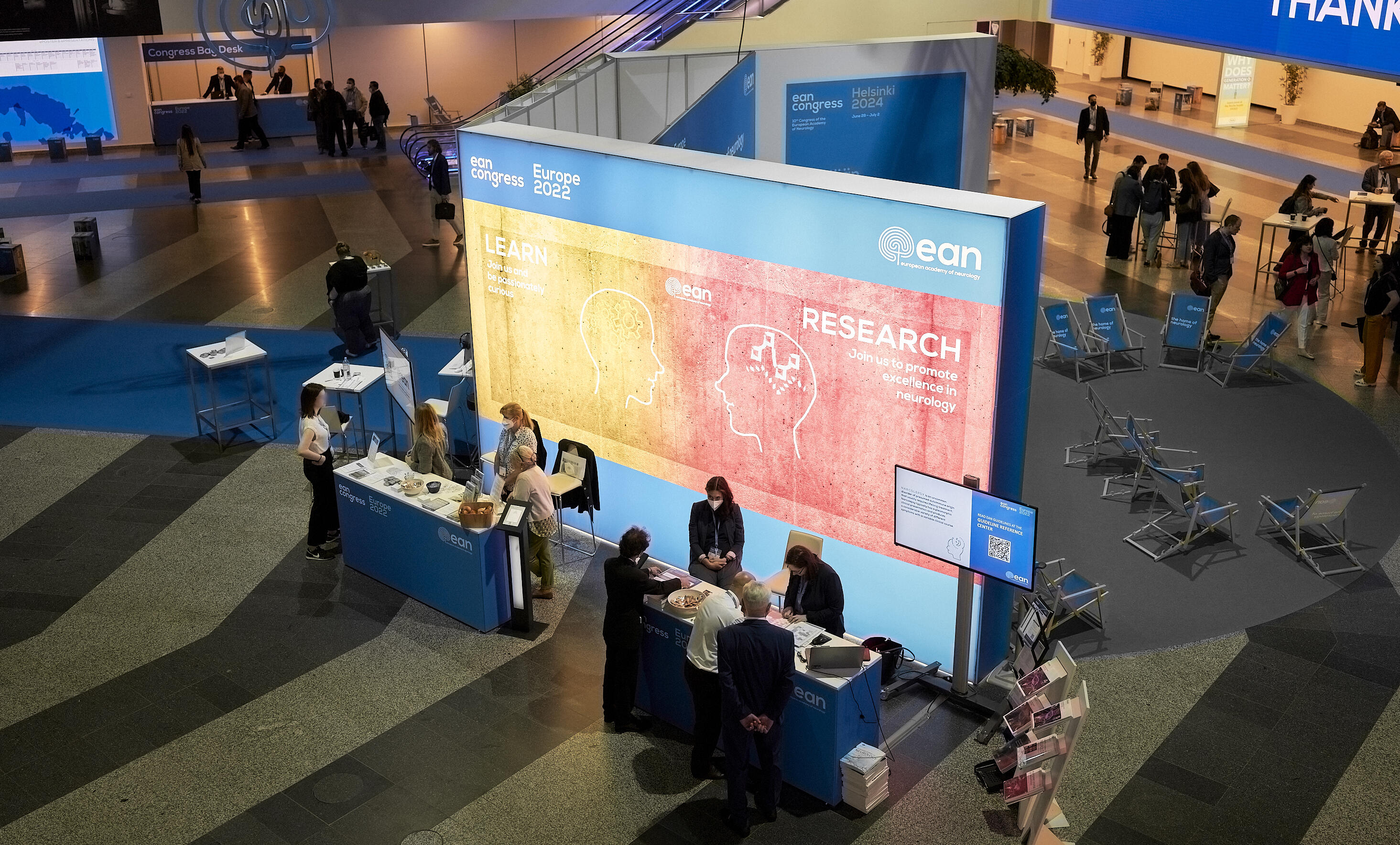Welcome to Progress in Mind’s live coverage of EAN 2022. This 8th Congress of the European Academy of Neurology – Vienna 2022 – continued today, June 26th. Symposia included sessions from the African Academy of Neurology; summaries of recent European guidelines for Parkinson’s disease; and the burden of neurological conditions in South America. There were several oral presentations, both in person and online, covering topics including epilepsy, neurotraumatology, sex and gender differences in the brain, multiple sclerosis, and sleep-wake disorders. The day ended with the Presidential Symposium with topics including the neurology of migraine and of MS. Here is a summary of today’s (Day 2) highlights from this hybrid in-person and online conference in Vienna.
An intercontinental view of neurological topics
Today, EAN 2022 included a number of focused and case-based workshops; ‘hands-on’ and teaching courses; career development sessions; and interactive sessions. These covered topics including assessment and treatment of movement disorders; the challenge of neuroinfection; secondary headaches; novel headache treatments; multiple sclerosis (MS) management; and statistics for neurologists.
From individual patient cases to African and South American experiences in neurology
There were several interesting symposia, special sessions and controversy sessions:
- Summaries of the new EAN/ Movement Disorder Society–European Section guidelines on invasive therapies for Parkinson’s disease and EAN guidelines on neuropathic pain assessment
- An African Academy of Neurology session regarding the African Neurological workforce; diversity in African Neurology; and the Angels Initiative for acute stroke in Egypt
- A panel discussion involving the European Federation of Neurological Associations on the theme of patient and public involvement in personalized healthcare
- Presentation and discussion of clinical, neuropathological, and radiological findings in patient cases of special interest treated at the Department of Neurology, Medical University of Vienna
- Opposing views on whether or not repetitive transcranial magnetic stimulation has matured into a useful treatment option for neurological conditions
- The burden of CNS infection, stroke and movement disorders in South America and of epilepsy in low- and middle-income countries
Satellite symposia and forum talks covered various topics such as an holistic approach to epilepsy management; migraine disease progression and management; progress in MS management; addressing motor fluctuations in Parkinson’s disease; and clinical trials in Alzheimer’s disease.
A hybrid mix of in-person and ePresentations
Oral presentations involved sessions on the topics of:
- Motor neuron disease, including talks on amyotrophic lateral sclerosis and facial onset sensory motor neuronopathy
- Sleep-wake disorders, such as sleep disordered breathing in acute stroke and hypersomnolence disorders
- Movement disorders, with a focus on Parkinson’s disease
- Epilepsy, including DNA methylation profiling and non-invasive/minimally invasive seizure forecasting
- Peripheral nerve disorders, such as experimental autoimmune neuritis and cancer-related neuropathic pain
- Neurotraumatology, with topics including risks associated with direct oral anticoagulant drugs and autonomic dysfunction following traumatic brain injury
- Neuroimaging use for predicting MS progression using MRI and white matter microstructural changes in healthy aging
Clinical experiences can inform research and vice versa
There were also several ePresentations on similar topics including named conditions such as MS and related disorders; motor neuron disease; epilepsy; and muscle and neuromuscular junction disorder, as well as more general topics such as aging and dementia; sleep-wake disorders; cerebrovascular diseases; cognitive neurology and neuropathies; movement disorders; and neuroimmunology.
Short lectures in the ‘scientific theatre’ arena included:
- The current global neurological landscape, featuring the Intersectoral Global Action Plan on Epilepsy and Other Neurological Disorders and the creation of OneNeurology
- Scientific developments in neuroimmunology
- The work of the Women’s Brain Project regarding sex and gender differences in the brain and in mental disease
- Updates on the EAN NEuro-covid ReGistrY (ENERGY) regarding data on neurological signs and symptoms in patients with COVID-19
The plenary symposium including four prize lectures
Understanding the neuropathology of migraine and multiple sclerosis
The Presidential Symposium included four presentations:
- The Brain Prize Lecture, delivered by Michael Moskowitz on the topic ‘The trigeminovascular system as a template for discovery in migraine’
- The Moritz Romberg Lecture about ‘Stroke systems and systematics,’ delivered by Bo Norrving
- The Charles Edouard Brown-Sequard Lecture by Kailash P. Bhatia, titled ‘The translational clinician: big gains from small observations’
The Camillo Golgi Lecture on ‘The contribution of neuropathology to MS research,’ given by Hans Lassmann




